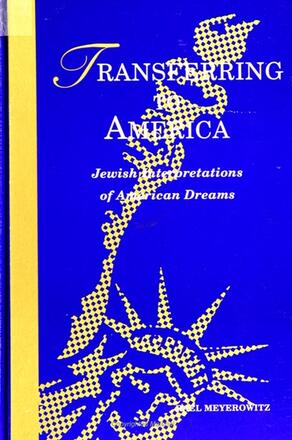
Transferring to America
Jewish Interpretations of American Dreams
Alternative formats available from:
This book uses recent psychoanalytic theory to analyze the work of three contemporary scholars--Harold Bloom, Stanley Cavell, and Sacvan Bercovitch--while viewing their work as expressing Jewish immigrant desires for integration into American culture.
Description
This book primarily concerns the work of three prominent literary scholars, Harold Bloom, Stanley Cavell, and Sacvan Bercovitch, treating them as second-generation immigrant Jewish Americans. With at least two meanings of "transferring" in mind, the title alludes both to the historical, socio-cultural actualities of immigrancy, and to the psychoanalytic model used to describe the relations between these readers and the American texts they interpret. The central claim is that the theories and critical practices of Bercovitch, Bloom, and Cavell can be considered as the tools and tactics of an ambivalent, not yet fully realized desire for integration into America. Their cultural identity as members of the Jewish minority in America can thus still be seen to operate as a compelling source of anxiety and motivation.
Rael Meyerowitz is Assistant Professor of Humanities in the College of General Studies at Boston University.
Reviews
"This book will fill a major gap in the history of American criticism and ethnic studies. It also concerns three widely read critics whose work has uninterrupted interest for the general critics writing today. " — Sander L. Gilman, Cornell University
"This book functions both as a general statement concerning the role and disposition of the American Jewish intellectual in the study of culture and as a nuanced perspective on different fields of academic endeavor as they are affected by the ethnic affiliations of the scholars in the field. " — Emily Budick, The Hebrew University of Jerusalem